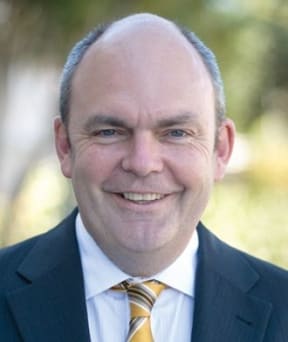Economic Development Minister Steven Joyce says the Government is doing all it can to help the manufacturing industry but will not intervene in the exchange rate.
The Labour, Green, New Zealand First and Mana parties are holding a parliamentary inquiry into manufacturing after the finance select committee blocked a request for a similar investigation.

Steven Joyce. Photo: NZ GOVERNMENT
Businesses and unions appearing before the inquiry said the sector is being hit hard by the high and volatile exchange rate.
However Mr Joyce told Radio New Zealand's Morning Report programme on Tuesday it "becomes a bit of a fool's paradise" for a Government to intervene in the exchange rate.
The minister said the last time that was done was in the 1970s and was a big mistake.
"We all know how that turned out when we took a bet with the kiwi dollar against the world and lost," he said.
"My view of it is that the dollar is pretty high for some exporters, and my feeling is that it will come back over time, because it is based around the fundamentals of what people think the world economies are doing."
Mr Joyce says nobody is arguing that being a manufacturer is not challenging, but just like any industry, it is challenging for different companies and at different times.

David Parker. Photo: LABOUR PARTY
"It all depends on their mix of inputs, where they get their business from, who they're selling to and all those things.
"There is no generic crisis in manufacturing but I would certainly acknowledge it is challenging for some companies."
The Labour Party says this country has fallen behind the world with its monetary policy as the country's most high value exporters complain they are struggling against the high value of the dollar.
Labour's finance spokesperson David Parker says countries such as Switzerland, the United States, Singapore and China are prospering by intervening in their currency markets in different ways.
"And yet New Zealand, we sit here like saps and we've got an exchange rate which is driving people towards the wall."
Mr Parker says manufacturers are also complaining about the tax system, saying it does not distribute money into productive parts of the economy
Redundancies gathering pace, says union
The political parties holding the inquiry say 40,000 jobs have been cut from the manufacturing sector in the past four years and change is needed to reverse the trend.
Engineering, Printing and Manufacturing Union general secretary Bill Newson said not only have jobs been lost, but in the past year the trend of redundancies in manufacturing increased markedly.
"Over last year we had an average of two separate companies for every week of the year that notified us of the need to talk about redundancies as a result of downsizing, closing down or sending work overseas."
Mr Newson says when the union spoke to the employers about the reasons for the redundancies, a common theme was the high and volatile exchange rate.
Exporter tells of moving jobs offshore
An exporter of vegetable processing equipment told the inquiry the company may be forced to source all its materials from China because of the high New Zealand dollar.
Wyma manufacturing manager Stewart Hyde said the engineering company is being crippled by the relentless rise of the dollar.
He says his company has now transferred more than 40 manufacturing jobs to China.
"The question I would pose is, to what extent does the New Zealand Government want us to stay here, what policy settings are going to change to make that happen."

